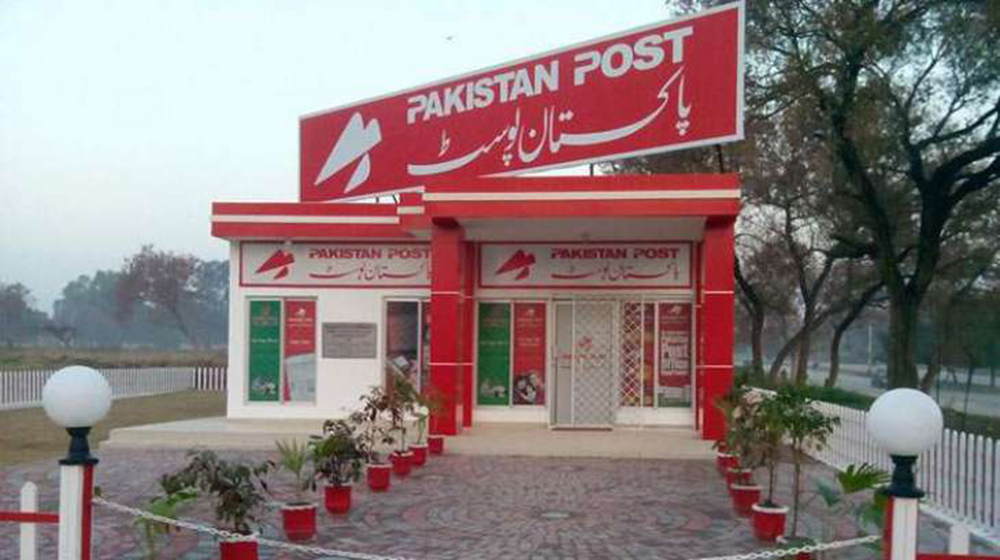Pakistan Post Office with its wide footprint across the country could potentially be converted to a full-fledged Postal Bank through technology, capacity building of the staff members, and offers of various new financial services.
The concept of a Postal Bank is not new as it has been very successful in various countries including Japan and China, which provide various financial services to a significant segment of the population and have become a reliable financial institution as listed entities in stock exchanges.
Post Office led financial inclusion may lead to economic empowerment and development – especially in the rural and other underserved areas. Certain factors tend to give the post office an edge over many other financial institutions at the institutional level, both in general across the globe and also in Pakistan’s case, according to a study by State Bank of Pakistan.
Functions of Pakistan Post Office
Pakistan Post is a government-owned entity run under the Ministry of Communications that primarily provides postal services to 20 million consumers. In addition to postal services, the organization also provides life insurance instruments, collects taxes and utility bills, money, and remittance transfer facility without taking deposits.
It also performs agency function on behalf of the Central Directorate of National Savings (CDNS) carries out transaction services for buying and selling instruments on behalf of CDNS. Data on gross investment in the National Savings Scheme shows that Pakistan Post contributes 25 percent to financial inflow under these schemes. This share has remained stable over the past decade.
Pakistan Post’s physical branch infrastructure consists of around 2,400 delivery post offices with 87 percent of these located outside the five most populated cities in the country.
The post office is well-positioned to facilitate certain financial services, such as international home remittances. On this front, the Pakistan Post launched a remittance service in June 2019 under the umbrella of the Pakistan Remittance Initiative, in collaboration with the National Bank of Pakistan (NBP).
A major incentive of the service was that neither the sender nor recipient would have to face burdensome charges or deductions on transferred amounts.; Moreover, the recipient could easily collect the funds from one of the designated 500 Pakistan Post branches or 1,500 NBP branches.
During Jul-Dec FY20, around $30.9 million of foreign remittances were reportedly routed through the Pakistan Post. If this channel gains popularity, it can discourage the use of hundi/ hawala and add to the country’s foreign reserves.
Potential of Pakistan Post Office
The remittance service in collaboration with NBP can be further expanded to include all post office branches (about 2,400), many of which are in areas not served by commercial banks. Moreover, the collaborating banks can provide simple account opening and ATM services at these post office branches in addition to the delivery of funds at doorsteps by the postmen.
By doing so, on one hand, international remittances will largely move to the formal sector adding to the country’s foreign reserves, while consolidation of savings in the formal sector would also pick up and gain traction over time.
The collaboration with a commercial bank in delivering remittances may lead to adequate training of the post office staff for the provision of financial services while making it easier for them to transition from manual record-keeping to IT-led operations. So, taking a transitioning step can actually go a long way in the case of using post office for enhancing formal financial inclusion.
With adequate training, they may be better placed to assess the farmers’ needs for financial services, compared to commercial bank officials who may either lack prior connections or may not be as familiar with the on-ground realities of the region. Knowledge of the farmers’ activities, crop and livestock performance, and likely future cash flows may help rationalize the needs to post large amounts of collateral.
The post office staff can also be a useful ally of the government in crop procurement and transfer of farm subsidies and can help minimize the overbearing role played by middle-men.
At present, the state of Pakistan Post is such that it needs a push to reinvigorate itself as an institution that can make a meaningful difference through its activities.
Future Outlook & Opportunities
Forming strategic partnerships with commercial banks, the Pakistan Post had entered into a 20-year strategic alliance with Habib Bank Limited (HBL) – a conventional bank – with the goal of enhancing financial inclusion.
Under this arrangement, the Pakistan Post will promote the services of HBL’s branchless banking platform, while HBL would invest in the technology, infrastructure, and capacity enhancement of the post office. Going forward, there is potential for the post office to establish similar partnerships with Islamic banks, which have been increasing their reach across the country.
Thus, in a strategic alliance, the post office could help disseminate information relating to Islamic banking in general, and the partner bank’s offerings in particular. In return, the Islamic bank would have the opportunity to expand its clientele among customers of the Pakistan Post who have shied away from conventional banks on religious grounds.
Pakistan Post would have to invest in streamlining its operations to comply with regulatory measures before undertaking any new initiatives to aggressively drive postal financial inclusion going forward.
Secondly, in order to be up to date and to compete with other financial institutions, Pakistan Post would have to invest in its technology infrastructure to stay relevant. Such investment has important and strategic externalities that outweigh the benefits in the long-run.
The provision of agriculture and livestock insurance schemes, generating local employment opportunities, and collection of financial data of previously unbanked households are some examples that may motivate investment in this legacy institution. There is a silver lining in these aspects as Pakistan Post can carry out all of this developmental and strategic work through meaningful collaborative efforts and partnerships with various public and private sector entities.


























new ways for it to lose money